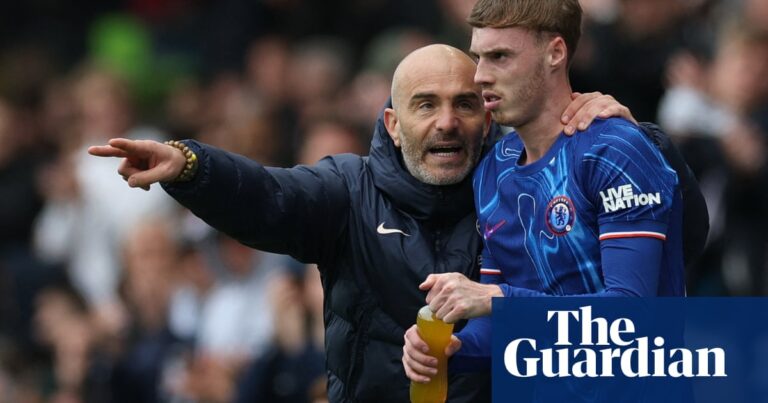The summer months offer a pause in the rhythm of my life. The school year ends, home life shifts and at least in principle the weather changes. For those of us who find solace in the football pages, summer becomes a rare moment to catch our breath between seasons, a time when the sport that so often defines our days takes a backdseat. Yet even in this lull I find myself drawn to the Olympics, captivated by sports I barely recognise and quickly forget for the four years between Games.
Like many, I become a fan of BMX, women’s rugby sevens, synchronised diving or any gymnastics event for two weeks every four years. This brief, intense passion hibernates until the next Olympics. It’s an enjoyable distraction, a temporary escape, but in truth it’s also a way to fill the void left by football’s absence, a sport that for better or worse shapes much of my life.
I often wonder how healthy this relationship with football is. The Olympics stave off the withdrawal from football. I spend far too much time seeking meaning in what is an arbitrary game. I wonder how my life might be better if I didn’t spend so much time aligning my schedule to football fixtures, or obsessing over where our team can strengthen or whether our pitches can be improved. Sometimes, I imagine that life might be simpler if I fell in love with a less consuming sport, such as one I’ve just watched. Maybe climbing.
This summer, while I hoped to take a breath, I found myself holding it; deeply troubled by the news of far‑right riots that had more than a few echoes of the football hooliganism of the 1980s, as set out by Simon Kuper in the FT. Tribalism sparked by the false claim that an asylum seeker was responsible for horrific murders in Southport. This lie incited violence that left me angered and depressed. Eventually this turned to hope and pride as communities rallied together, showing us a glimpse of what our country really is.
We all search for a narrative in our lives that offers coherence and hope. We then cling to it like a lifeboat. Politicians have a crucial role in showing strength in enforcing the law but more importantly offering a vision of a future that works for everyone. Stability and hope are necessary to weather storms. Fear, chaos and violence are the winds that blow right through to our bones, unmooring our grasp on the present.

We are meaning-seeking creatures and this is especially evident in our engagement with sport. It’s the reason we invest so much emotional energy into these fleeting moments. Viktor Frankl, in his seminal work Man’s Search for Meaning, argues that the primary drive in human life is not pleasure, as Freud suggested, or power, as Nietzsche proposed, but the pursuit of meaning. Frankl’s experiences as a Holocaust survivor taught him that even in the most horrifying circumstances, individuals somehow found purpose by identifying a deeper sense of meaning in their suffering.
This idea resonates when we consider the narratives woven through sport, particularly the Olympics and the beginning of a new football season. Athletes endure gruelling training, face numerous challenges and sometimes confront defeat, yet they persist in their pursuit of victory because it offers them a profound sense of purpose. They dedicate their lives to perfecting their craft, often for a moment of glory. For us as spectators these moments provide a sense of possibility and connection. We look to those athletes who embody our ideals, represent us as a town or nation and may even inspire us to strive for excellence in our own lives. These grand narratives of triumph and defeat somehow provide a canvas for us to project our own hopes, dreams and fears.
But there’s also a more straightforward reason sport matters. On the way to the first game of the season at Fleetwood, I was chatting with a good friend who runs a trust of academies in an inner city. He said that over the past decade there has been less laughter and joy in teaching and classrooms. He attributes this to the rigour and structure imposed by governments which have stifled the spontaneity and joy that should be part of education. It’s why sport is a crucial part of the solution; it offers a release and the opportunity to have fun. In an age of amplified social media anger and the relentless pursuit of success, we sometimes lose sight of the fact that having fun can be enough.
Beyond the spectacular achievements of elite athletes, joy in sport often emerges in smaller yet equally profound victories. Moments such as when the president of Botswana declared a national holiday to celebrate Letsile Tebogo’s 200m victory. Or when Cindy Ngamba, representing the Refugee Olympic Team, became the team’s first medallist in boxing, her victory a beacon of hope for millions. And there are lighter moments, such as in the women’s beach volleyball final when a tense exchange between the players was diffused by the DJ playing the John Lennon song Imagine. The saccharine lyrics brought the crowd into a moment of mass karaoke and the players couldn’t help but smile.
Sport provides a powerful framework for fun and meaning. Whether it’s the fleeting passion of the Olympics or an enduring commitment to Grimsby Town, our engagement reflects our deepest desires and aspirations. As the football season begins, there is a chance to embrace this opportunity to create new narratives, to find meaning in the shared experience of sport and, most importantly, to remember that it is all supposed to be fun.
Source: theguardian.com


















